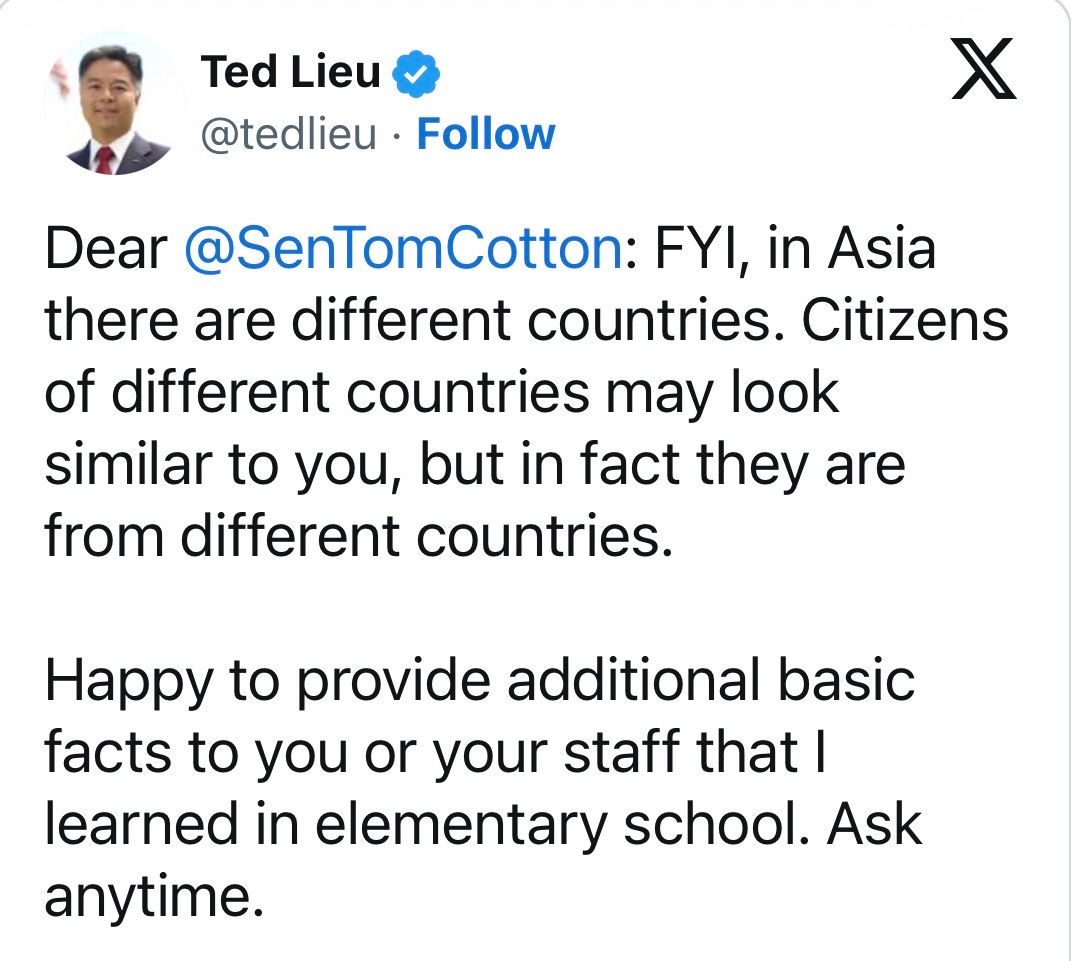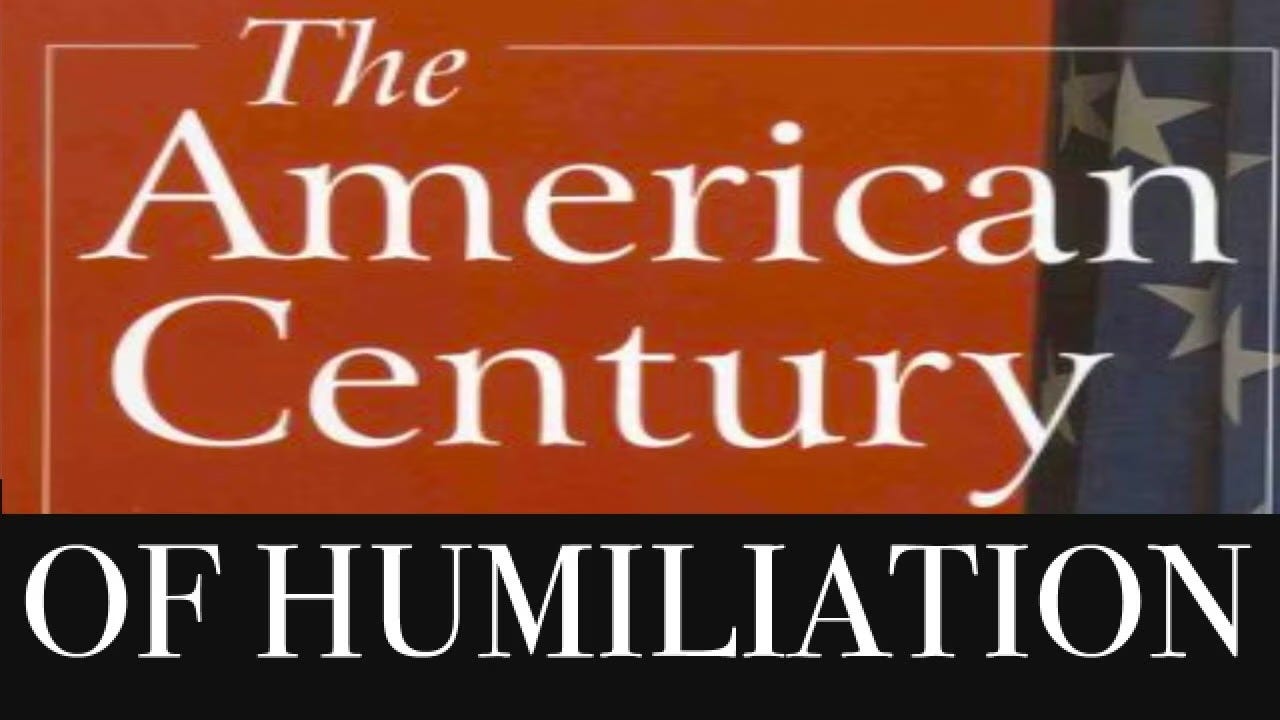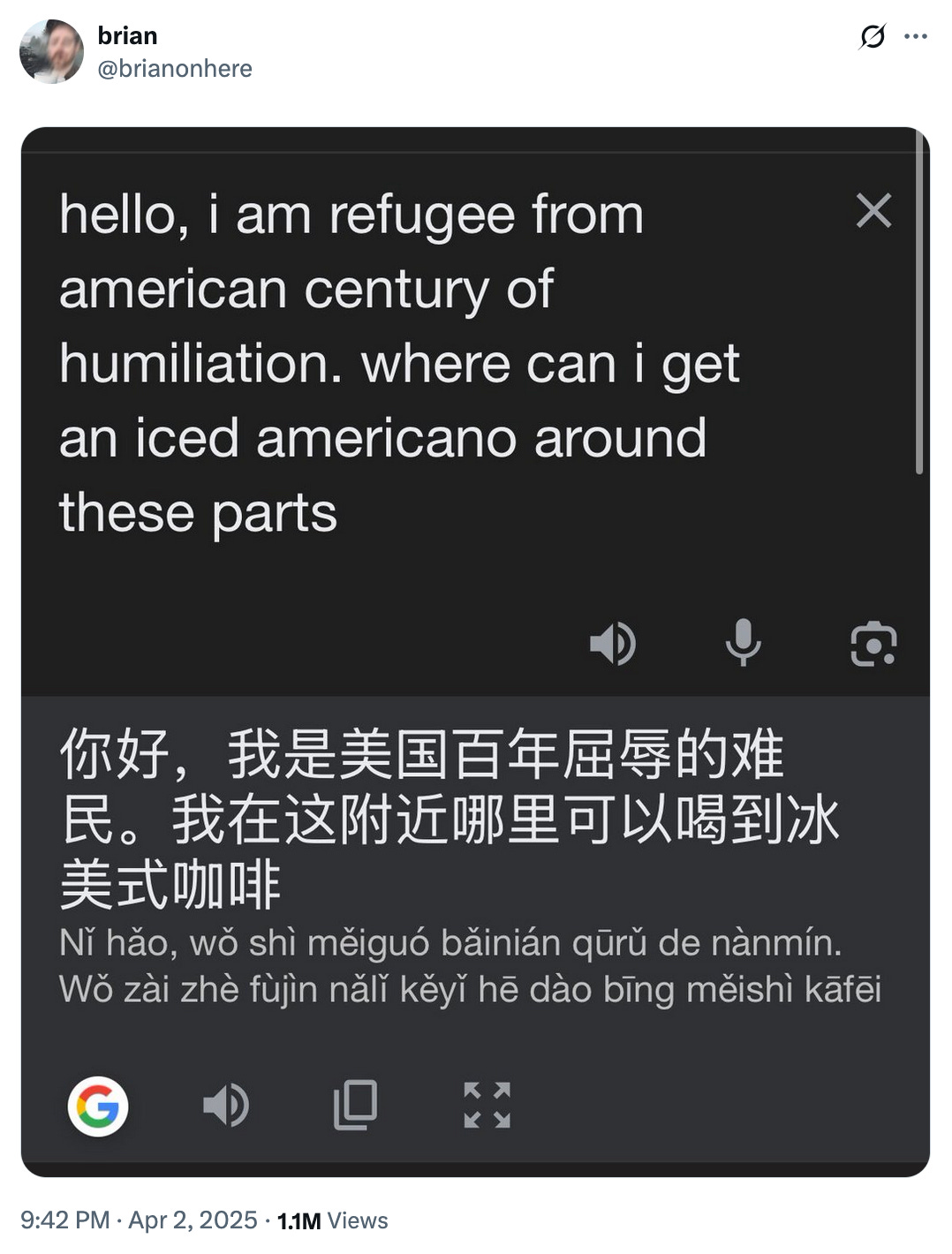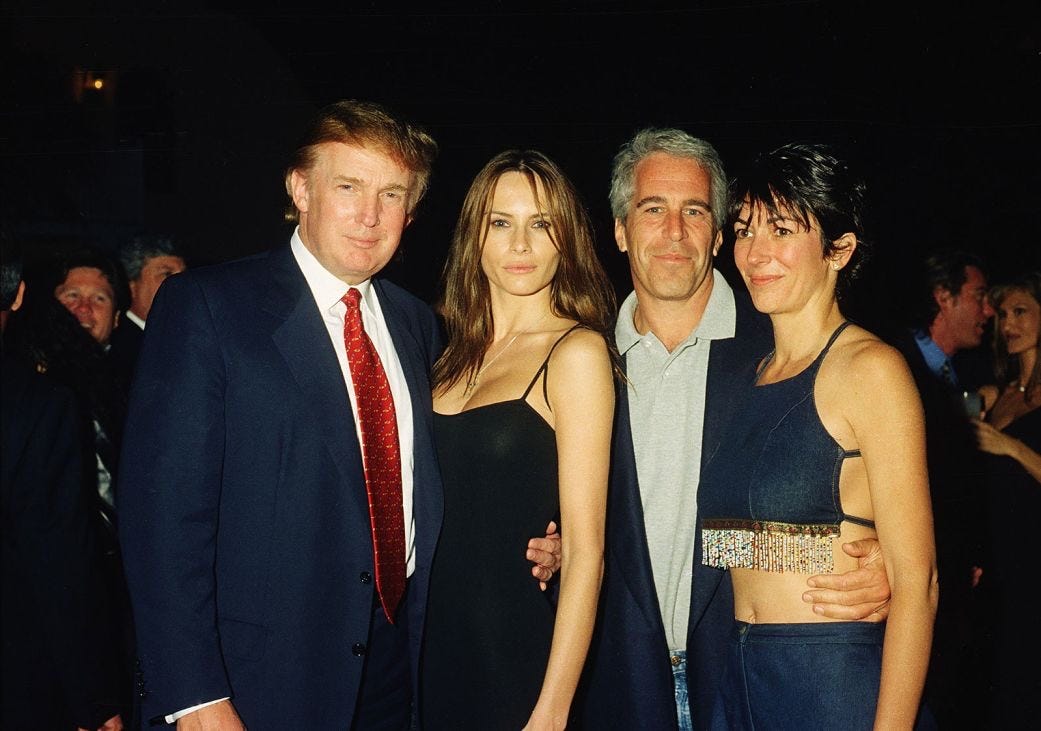The State of Statecraft during the American Century of Humiliation
Why are we not sending bad bitches abroad for espionage-purposes? China is.
I just was reading this The Times exposé on the honeytrap schemes the idiots in Silicon Valley are falling for.
Hot Chinese girls are wooing nerds for trade secrets, successfully.
This is a huge, humiliating problem.
Mulvenon, who has investigated espionage in the US for 30 years, said the honeytrap tactic was “a real vulnerability” for the US “because we, by statute and by culture, do not do that. So they have an asymmetric advantage when it comes to sex warfare”.
How is the country of the sexual revolution and rampant pornography losing in sex warfare!?
America has the hottest women of all time but we're letting them get shat on in Dubai instead of instrumentalizing them for our geopolitical advantage. We're hypersexual when it destroys our social fabric but frigid when it's politically useful.
This is another glaring signal of the American Century of Humiliation.
You've probably heard this term if you've spent any time in politically charged internet spaces. If you haven't, it's a borrowed term from the Chinese Century of Humiliation (1839-1949); this period was the charge that catalyzed the eventual Cultural Revolution, and was marked by foreign domination, widespread poverty, internal fragmentation, loss of sovereignty, and national shame becoming the defining cultural attitude.
America has arguably been in its own humiliation period for the last 10 years or so, maybe more. Our culture is defined by incompetence, fragmentation, quality of life decay, and psychological kowtowing to foreign powers.
Everyone is aware of this, but the degree to which you are willing to point to it varies by politicial persuasion. Progressives live in denial while conservatives live in intertial hysteria. Both the GOP and the DNC feed the humiliation loop; the broader American Left denies geopolitical competition because nationalism triggers moral panic, while the Right catastrophizes foreign threat while insisting on helplessness.
The pulse that everyone feels in silence is that the elites don't seem to care. Whether you want to rage against the "Billionaires" or the "Globalists", America's elite class is post-national. They don't think in terms of national interest, but of individual aggrandizement. Profits, markets, supply chains, tax avoidance and personal mobility drive their behavior. If American infrastructure collapses or if governance is incompetent, it doesn't really matter. The purse strings are held by the apathetic trans-nationals who have no embedded loyalty to their countrymen.
There is no incentive for people with real power (non-politicians) to remedy structural wrongs. Morally derived altruism is a shakey motivation. Expecting humanitarianism from operators whose incentive structures run in the opposite direction is a categorization error.
The American Century of Humiliation operates on a simple paradox: America is the most powerful country on earth, yet behaves as though it is the victim of both its own citizens and other countries.
I was joking, but also totally not joking in the beginning of this article.
The failures of American capacity are absurd, and bitterly hilarious as a cause. I cannot help but joke about it.
Why are our hot girls pimping themselves out on Onlyfans for the price of a hotdog? Chinese girls are doing it for $600 billion in tech IP.
We need to get it together!
America used to be really good at this kind of evil politicking. We have poisoned generations of Vietnamese people for basically no reason. We have destabilized entire segments of Latin America mostly because we hated their vibes (socialism). We have killed ~1 million Afghan citizens for Dick Cheney's investment portfolio (god rest his soul). Why are we now, in 2025, completely crapping out on our insidious realpolitik traditions?
We're losing the game we built this country on.
Now this isn't me saying I like Kissinger or me making a moral justification for American atrocities. I'm just saying —isn't it weird how ineffectual the country is now?
We're not even competently immoral anymore.
The espionage I complain about is that double bind in action. We are not coordinating serious counterintelligence in response to foreign interference. We won't retaliate against it, we can barely maintain basic infrastructure, we punish our own citizens (e.g. SNAP cuts), and are bizarrely passive in the face of competing powers.
The U.S. is a massive surveillance state with no discipline —everyone is terminally online, gullible, easily distracted, and lonely. Competitor states take advantage of this relentlessly.
I like America —I enjoy a bit of civic nationalism too —but if I have to be honest, whenever I get a whiff of secondhand crack smoke on the SEPTA, I do consider defecting to China. They're ordering food delivery on their high speed railways while I dodge bedbugs in Philly. It pisses me off.
It feels pointless to complain about it though: a leftist will moralize me as racist or unempathetic to addiction, while a right winger will agree but attribute the problem to some supernatural conspiracy, likely involving Jewish people or perhaps the World Economic Forum. Demonic cabal logic.
Everything feels unserious and degraded: I'm sure you feel it too.
So back to the real question: why aren't we honeytrapping lonely Chinese men? They have a stagnate birth rate and an insane sex-ratio imbalance —from a soft power angle, they are rife for exploitation. Men are often very weak in this regard; they will 100% upend their lives and sell out their country for a crumb of sexual attention. I don't know if I believe in the American capacity to take advantage of this anymore. The asymmetry of vulnerability —and willingness to exploit it— is absurd.
The only American politician I respect now is Tom Cotton. Yes, I know this is a bit off brand for the politics I write about (or maybe not?), but I mean it. His hyperfixation on national security is endearing to me, despite not wanting to be dragged into war with China. The only person who attempts geopolitical realism in Congress is a hawk Republican cartoon.
The Senate Judiciary Committee's TikTok hearing is the purest case study of my grievance. Cotton's interrogation of TikTok CEO Shou Zi Chew —and especially the public framing of it —is a microcosm of our humiliation dynamic with China.
Thomas McCarthy Cotton's cross examination tactics were egregiously corny. I do think he watched Oppenheimer before entering that room to hype himself up.
Yet he was making materially significant inquiries.
In America, seriousness looks insane, because our baseline is unserious.
Chew gave zero answers to objectively straightforward, but substantive, questions.
"Is TikTok under the influence of the Chinese Communist Party?"
"We are a private company."
"Okay so you can see that your parent ByteDance is subject to the 2017 National Security Law which requires companies to turn over information to the Chinese government and conceal it from the rest of the world."
"Any company that does global business does business in China and has to follow their local laws."
"Isn't it the case that ByteDance has its own internal Chinese Communist Party Committee?"
"Like I said all businesses that operate in China have to follow local law."
…
"Have you ever been associated with or affiliated with the Chinese Communist Party?"
"I'm Singaporean."
…
"...[Is] the Chinese government committing genocide against the Uyghur people?"
"…Senator I'm here to talk about what TikTok does."
Isn't this weird?
This stonewalling goes on the entire examination. His questioning style looks insane but this is what real cross examinations looks like, and Cotton is a lawyer by training. It's typical prosecutorial technique. He was trying to corner him into an answer. Repitition of obvious questions with obvious answers is tactical.
Why is this Singaporean billionaire, with purportedly no legal or political obligation to Beijing, unable to answer questions directly? If someone cannot give a plain "yes" or "no" —or even an "I don't know" —to a yes or no question, you should distrust them.
As a Singaporean national, he should have no personal political risk in answering these questions unless:
TikTok/ByteDance has concrete political entaglements with Beijing, and/or
He is operating with constraints aligned with CCP interests.
Either way, this is a massive national security liability of interest to the American public. His answers manage perjury risk; they don't elucidate.
The progressive media had an absolute ball with this story. This gorillionaire Singaporean man was framed as a victim of GOP white supremacy, with each incisive racial attack adorned in an Arkansan drawl. This is an absurd reversal of reality, spun in progressive identity-politics thinking: a foreign tech executive, with infinite financial resources and unimaginable global mobility, is a relatable everyman symbol of "anti-Asian racism".

Huh?
Weirdly enough, this committee was totally bipartisan— both Republican and Democrat members expressed unified concern about the national security risks of TikTok as an entity, both abstract and tangible.
I certainly blame fast-churn, vapid media outlets for mismanaging this story. TikTok is materially connected to Beijing in ways most Americans do not understand. The bureaucratic structure is murky, and the U.S. cannot govern foreign tech whose architecture it cannot describe. Our relationship with China now is adversarial, not diplomatic. This is the context Cotton was trying to raise —arguably clumsily, but meaningfully.
For whatever reason, Cotton became the laughing stock of progressive media and the face of American ignorance. The morally arrogant, rather condescending widespread assumption became that Cotton (someone demonstrably not stupid) was too stupid to know that Singapore is a country.
What baffles me is the power illiteracy of the progressive, mainstream media. Everything is filtered through racial optics and "vibes". Rather than the story being that of a billionaire interlocutor as a vector of foreign influence, it became one of racial bullying by a white Southerner. And since the right wing media is mired in wignat conspiracy-making and religious zealotry, there's nowhere to turn to beyond fragmented, independent outlets online.
U.S.-China relations are totally confused because Americans are politically-illiterate and unserious. The American public lacks the ability to interpret what their politicians are even trying to do. America's only (relatively) prominent geopolitics-minded politican is made to be a joke, and the sad part is that he should have been taken more seriously by the media.
When China plays chess our media asks if the chessboard is racist.
Real national-security concern gets run through culture-war hysteria, flattening strategic issues into moralized narratives. The result is that there is no clear threat model; the dominant security-concerned conservative base defaults to Sinophobic sentiment to cope. The consequent anxieties get displaced downward into administrative crackdowns against Chinese immigrants or random international students rather than real structural issues.
Geopolitical strategy and national security must be parsed through a culture-war Rorschach test for the general public, and that is why we stay humiliated.
When power is illegible, people attack symbols. Abstract foreign influence becomes a teenager in a Bape hoodie. Mass confusion, with no route to clarity.
There have been legitimate concerns against the wealthy international students academic institutions have increasingly relied on for profit. The vast majority, however, are just rich kids goofing off in a foreign country. They are not geopolitical actors, espionage agents, and their driving incentives are getting a degree and wearing cool luxury streetwear.
The Chinese espionage agent is typically hiding in a post-graduate research program anyway —the average undergraduate student gets miscast as an infiltrator because the average American is too gullible and not curious enough to differentiate. Although it does sometimes happen —you can’t extrapolate this security concern to all the several hundred thousand Chinese students choosing to study here.
How is a global superpower this gullible? And how can we counter an adversary weaponizing this gullibility? China is making the U.S. look like it has CTE.
At this rate, we can expect way more Silicon Valley honeytrapping with very little meaningful counter-response.
Yes, random dork software engineer in Palo Alto, that 10/10 Asian girl really does like your personality.
And China will stay winning.






